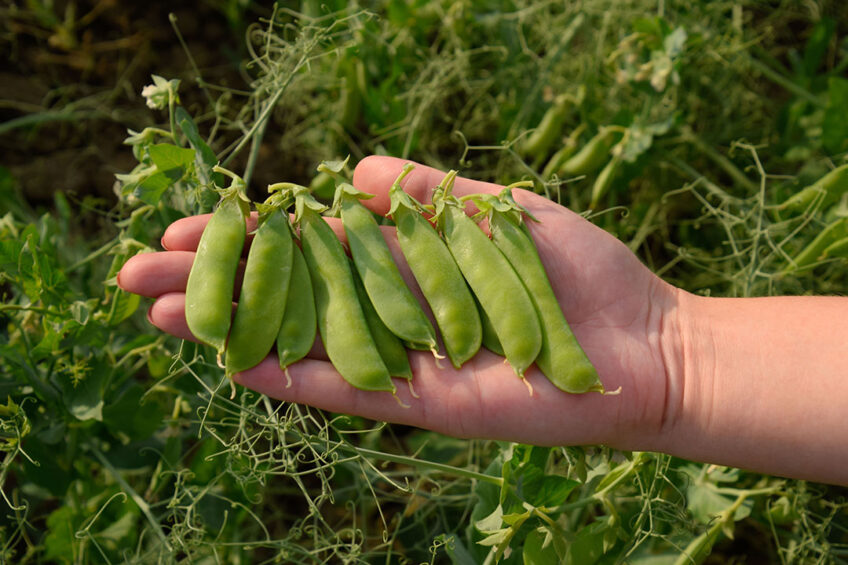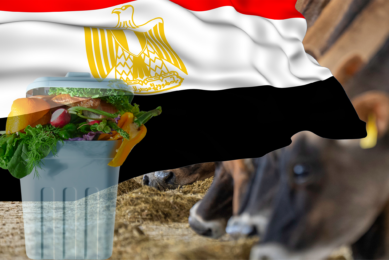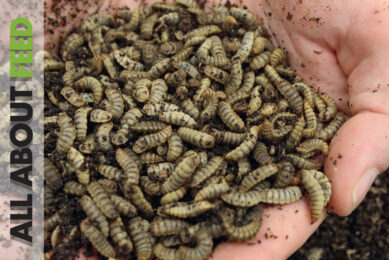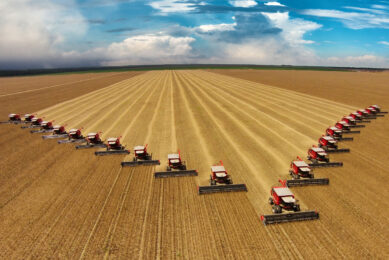Soya meal reduction through nitrogen efficient plants

Moves to reduce 1.5m tons of CO2 equivalent per annum across the UK farming sector are underway through a new farmer-led research programme, involving 17 industry and research partners and more than 200 arable farmers.
Its key aims are to bring about a 54% reduction in CO2 equivalent levels, reduce levels of imported soya meal used in livestock feed rations with home grown legumes by 50% and the same time increase pulse and legume cropping in arable rotations from the current 5% to 20% (1m hectares) across UK farms.
This would reduce nitrogen fertiliser use by 233,000t, resulting in 0.55m tonnes CO2 equivalent reduction. Using the subsequent produce in animal feed would deliver a further 0.7m tonnes CO2 equivalent reduction. The residual nitrogen benefit to following crops through soil enrichment would also lead to an additional 0.25m reduction of CO2 equivalent.
These aims will be steered by science and proven real farm enterprises, with significant benefits for both crop and livestock productivity, including cost savings of over £1bn/year. Nearly £6m is being provided through government support over 4 years.
As part of the initiative, a new PulsePEP (Performing Enhancing Platform) community is being established – a platform and knowledge exchange hub for farmers who are striving to achieve the best from pulse crops and reduce their carbon emissions.
There are a range of work packages being introduced as part of the project:
- The James Hutton Institute, led by Dr Pietro Iannetta, is leading a work package gathering data and insight from all the other programmes to feed into the UK’s first comprehensive life-cycle assessment of arable cropping systems. It will enable farmers to compare and contrast different assessment tools and agronomic approaches underpinning farm carbon emissions, informing land-use risk assessments of crop rotations.
- ADAS’s Dr Pete Berry will test the hypothesis that increased pulse cropping can substantially reduce carbon emissions from agriculture. This is done using historic farm data and information from new farm trials and the Pulse Yield Enhancement Network (YEN). Evidence about the impact of pulse crops on nitrogen usage, crop productivity, costs, sustainability, environmental impact and water quality will be evaluated as part of the project with the Farm Carbon Toolkit.
- PGRO’s Roger Vickers workstream will aim to identify and quantify the resilience of soil GHG emissions under climate change, bringing together work from Cranfield University, the Game and Wildlife Conservation Trust and James Hutton Institute. A key platform is the Plant Phenotyping and Soil Health Facility at Cranfield. This huge greenhouse allows precise and accurate measurements of the whole crop production cycle in large, custom-built soil containers.
it was clear that pulses and legumes have considerable benefits for UK farming systems but these had never been accurately measured
Roger Vickers, PGRO
- McArthur Agriculture, working with Scottish Rural College, Agri, First Milk and LC Beef Nutrition, will be looking at replacing imported soyabean meal with home-grown legumes and pulses in animal feeds. Farm based heat treatment and de-hulling of beans, whole crop forage optimisation and other techniques will be deployed in both scientific and commercial trials. These will be applied across a range of livestock sectors to assess how diets can be reformulated based around home-grown proteins.
- The final work package, run by PGRO, will establish the best scenarios for delivering the optimum environmental and financial return on investment for farmers from pulse crops.
Roger Vickers, PGRO chief executive, said it was clear that pulses and legumes have considerable benefits for UK farming systems but these had never been accurately measured: “So their value has been underplayed and their potential to address the climate crisis has gone unrecognised.
“Together we can change that. We now have the science, the tools and the know-how among UK farmers, not only to tap into that potential, but to develop if further.”
Nitrogen Efficient Plans for Climate Smart Arable Cropping Systems (NCS) is being funded through Defra’s Farming Innovation Programme











